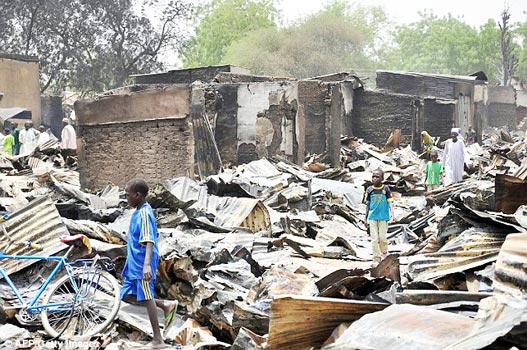
A United Nations report has identified the predominance of the cash economy as a major factor fuelling the nefarious activities of Boko Haram militants and other terrorist groups in the Lake Chad Basin .
According to the 22nd Report of the Analytical Support and Sanctions Monitoring Team, pursuant to resolution 2368 (2017) concerning Islamic State in Iraq and the Levant – (ISIL), extortion, charitable donations, smuggling, remittances and kidnapping were some of the ways Boko Haram was being funded.
The report which was submitted to the Security Council Committee pursuant to resolutions 1267 (1999), 1989 (2011) and 2253 (2015) concerning ISIL, Al-Qaida and associated individuals, the Boko Haram insurgency in Northern Nigeria has caused over 100,000 deaths.
The activities of the country’s security forces have largely limited the activities of the terrorists to three north-eastern states of Adamawa, Borno and Yobe even as Nigerian forces are collaborating with neighbouring countries like Chad and Niger in a multi-national force to defeat the terrorists.
The UN report said the number of doctrinally based non-government organizations sending funds to local terrorist groups was growing and member states were concerned that radicalization was increasing the threat level in the Sahel.
“Meanwhile, Boko Haram (QDe.138) and the Islamic State West Africa Province (ISWAP) have had a similar impact in their areas of control, including the Lake Chad basin.
“The predominance in the region of the cash economy, without controls, is conducive to terrorist groups funded by extortion, charitable donations, smuggling, remittances and kidnapping.
“In Nigeria, 111 schoolgirls from the town of Dapchi were kidnapped on 18 February 2018 and released by ISWAP on 21 March 2018 in exchange for a large ransom payment,” the report stated.
The report was signed by Edmund Fitton-Brown, Coordinator, Analytical Support and Sanctions Monitoring Team and Kairat Umarov, the Chairman of the Security Council Committee.
The UN Security Council committee on al Qaeda sanctions had in 2014, blacklisted and imposed sanctions on the Boko Haram Islamist militant group after the insurgents kidnapped more than 200 schoolgirls from a school in Chibok.
The UN Security Council had also last week said it remained concerned at the security and humanitarian situation caused by the Boko Haram terrorists and other armed groups in Nigeria, Cameroon and Chad.

Air Peace Plane Makes Emergency Landing In Lagos Following Fire Warning Indicator
Ajayi Agboola Emerges PDP Flagbearer For Ondo November Gubernatorial Election
119 Inmates Escape As Storm Damages Suleja Custodial Centre
Tinubu Launches Consumer Credit Scheme To Empower Working Nigerians